November 19 stands as one of history’s most eventful days, witnessing the rise and fall of empires, groundbreaking discoveries, and moments that shaped our modern world across centuries of human achievement.
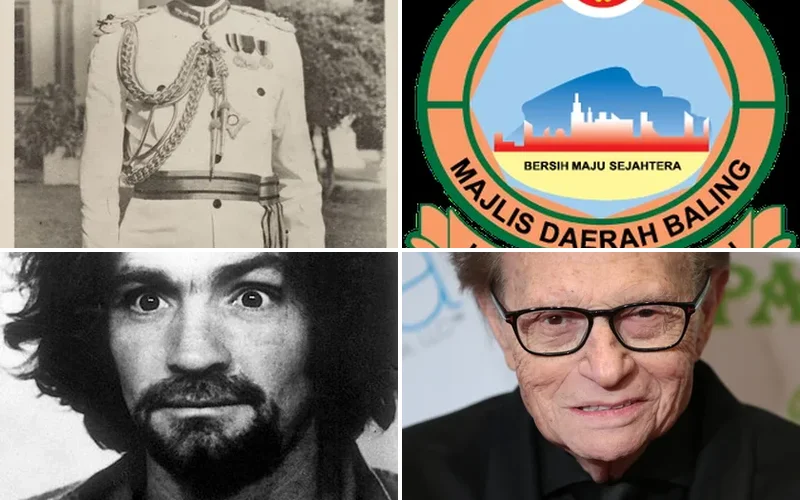
Politics and Government Events on November 19
1912 – Serbian Army Captures Bitola, Ending Ottoman Rule
The Serbian Army triumphantly captured Bitola during the First Balkan War, bringing an end to five centuries of Ottoman rule over Macedonia. This decisive military victory marked a turning point in Balkan politics and Ottoman decline.
The fall of Bitola represented more than territorial conquest; it symbolized the liberation of Christian populations from centuries of Islamic rule. Serbian forces established new administrative structures throughout the region, fundamentally altering the political landscape of southeastern Europe.
1946 – Three Nations Join the United Nations
Afghanistan, Iceland, and Sweden simultaneously joined the United Nations, expanding the organization’s global reach and influence. These diverse nations brought unique perspectives to the emerging international body.
The admission of these countries strengthened the UN’s legitimacy as a truly global organization. Each nation contributed distinct diplomatic traditions and regional expertise to the world body’s growing membership.
1950 – Eisenhower Appointed NATO Supreme Commander
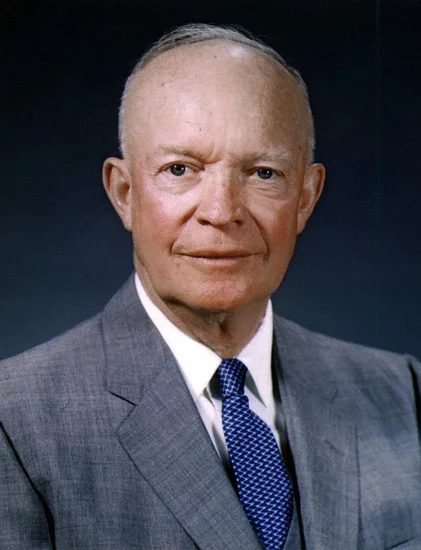
US General Dwight D. Eisenhower accepted appointment as Supreme Commander of NATO-Europe, bringing his World War II leadership experience to the Cold War alliance. His selection unified Western military strategy under American leadership.
Eisenhower’s appointment solidified American commitment to European defense during rising tensions with the Soviet Union. The general’s reputation for coalition building made him an ideal choice for leading the multi-national alliance.
1988 – Milošević Declares Serbia Under Attack
Serbian communist leader Slobodan Milošević publicly declared that Serbia faced threats from Albanian separatists in Kosovo, internal treachery, and foreign conspiracies. His inflammatory rhetoric escalated ethnic tensions throughout Yugoslavia.
This speech marked a crucial moment in the dissolution of Yugoslavia, as Milošević’s nationalist appeals undermined the multi-ethnic federation. His declarations foreshadowed the violent conflicts that would tear the region apart in the 1990s.
1998 – Clinton Impeachment Hearings Begin
The United States House of Representatives Judiciary Committee commenced impeachment hearings against President Bill Clinton in the Clinton-Lewinsky scandal. The proceedings captivated the nation and threatened presidential authority.
These historic hearings represented only the second presidential impeachment process in American history. The committee’s deliberations would ultimately lead to Clinton’s impeachment by the full House, though the Senate later acquitted him.
Military and Naval History on November 19
1941 – HMAS Sydney and HSK Kormoran Mutual Destruction
The Australian cruiser HMAS Sydney and German raider HSK Kormoran engaged in a devastating naval battle off Western Australia, with both ships sinking each other. The encounter claimed 645 Australian lives and approximately 77 German seamen.
This unprecedented naval engagement shocked the Australian public and military leadership. The complete loss of Sydney represented Australia’s worst naval disaster, while Kormoran became the only German auxiliary cruiser to sink a regular warship.
1942 – Operation Uranus Launched at Stalingrad
Soviet forces under General Georgy Zhukov launched Operation Uranus, a massive counteroffensive that turned the tide of the Battle of Stalingrad. The operation encircled German forces and marked the beginning of Nazi Germany’s retreat from the Eastern Front.
Zhukov’s brilliant strategic planning caught German forces completely off guard. The successful counterattack not only saved Stalingrad but also initiated the Soviet Union’s long march toward Berlin and ultimate victory.
1944 – Battle of Vianden Resistance Victory
Thirty members of the Luxembourgish resistance successfully defended the town of Vianden against a larger Waffen-SS attack. Their heroic stand demonstrated the courage of small nations fighting against Nazi occupation.
The resistance fighters’ victory inspired hope throughout occupied Luxembourg and proved that determined defenders could defeat superior forces. Their sacrifice became a symbol of Luxembourg’s unwavering opposition to German rule.
1943 – Janowska Concentration Camp Liquidated
Nazi forces liquidated the Janowska concentration camp in Lviv, Ukraine, murdering at least 6,000 Jews following a failed uprising and mass escape attempt. The massacre represented one of the Holocaust’s most tragic episodes.
The brave but doomed uprising demonstrated Jewish resistance against Nazi extermination policies. Despite facing overwhelming odds, the prisoners’ rebellion challenged the Nazi narrative of passive compliance and inspired other resistance movements.
Science and Discovery Milestones on November 19
1969 – Apollo 12 Moon Landing Achievement
Apollo 12 astronauts Pete Conrad and Alan Bean successfully landed at Oceanus Procellarum, becoming the third and fourth humans to walk on the Moon. Their precision landing demonstrated NASA’s growing mastery of lunar exploration.
The astronauts conducted extensive scientific experiments and collected vital geological samples. Their mission proved that lunar landings could be repeated reliably, advancing America’s space exploration capabilities and scientific understanding.
1996 – Columbia’s Record-Breaking Space Mission
Space Shuttle Columbia launched on STS-80, which became the program’s longest mission at 17 days. Astronaut Story Musgrave made history by becoming the only person to fly on all five different space shuttles.
The extended mission allowed for comprehensive scientific research and technology demonstrations. Musgrave’s achievement highlighted the shuttle program’s evolution and the dedication of NASA’s veteran astronauts.
1999 – China’s First Spacecraft Launch
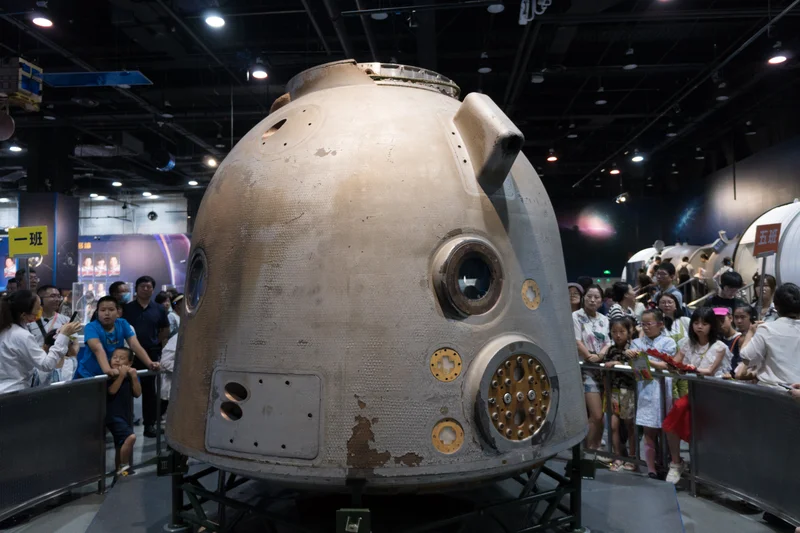
The People’s Republic of China launched its first Shenzhou spacecraft, marking the nation’s entry into human spaceflight capabilities. This historic achievement demonstrated China’s growing technological prowess and space ambitions.
The successful launch positioned China as the third nation capable of human spaceflight. This milestone initiated China’s rapid advancement in space technology and eventual emergence as a major space power.
Cultural and Arts Events on November 19
1916 – Goldwyn Pictures Established

Samuel Goldwyn and Edgar Selwyn established Goldwyn Pictures, creating one of Hollywood’s most influential film studios. Their partnership revolutionized American cinema and established new standards for motion picture production.
The studio’s formation marked a crucial moment in Hollywood’s evolution from small-scale entertainment to major industry. Goldwyn Pictures would later merge with Metro Pictures and Louis B. Mayer Productions to form Metro-Goldwyn-Mayer.
1955 – National Review Launches
National Review published its first issue, establishing a influential conservative voice in American political discourse. The magazine shaped conservative intellectual thought and political strategy for decades.
William F. Buckley Jr.’s publication provided a sophisticated platform for conservative ideas during the liberal consensus era. National Review’s influence extended far beyond journalism, helping to build the modern conservative movement.
1967 – TVB Broadcasting Begins in Hong Kong
Television Broadcasts Limited (TVB) began operations as Hong Kong’s first wireless commercial television station. The launch revolutionized entertainment and information access throughout the territory.
TVB’s programming reached millions of Chinese speakers worldwide, spreading Hong Kong’s cultural influence throughout Asia. The station’s success established Hong Kong as a major media production center and cultural hub.
1952 – Télé Monte Carlo Launches
Prince Rainier III launched Télé Monte Carlo, Europe’s oldest private television channel. The pioneering broadcast station introduced commercial television to the Mediterranean region and European audiences.
The channel’s establishment challenged state monopolies over television broadcasting across Europe. Télé Monte Carlo’s success demonstrated the viability of commercial television and inspired similar ventures throughout the continent.
Religious and Social Events on November 19
1942 – Mutesa II Crowned Kabaka of Buganda
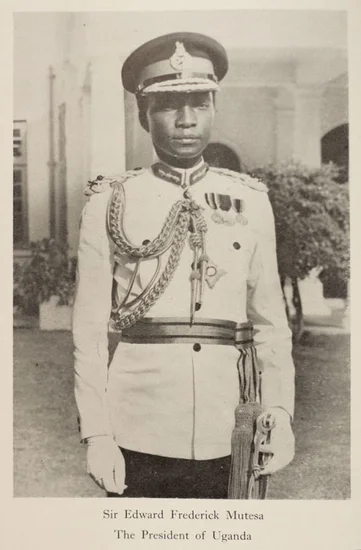
Mutesa II was crowned as the 35th and last Kabaka (king) of Buganda, prior to the kingdom’s restoration in 1993. His coronation represented the continuation of ancient African royal traditions under British colonial rule.
The ceremony maintained Buganda’s cultural identity despite colonial pressures for modernization. Mutesa II’s reign would span decades of political upheaval, including Uganda’s independence and the kingdom’s temporary abolition.
1979 – Iran Releases American Hostages
Iranian leader Ayatollah Ruhollah Khomeini ordered the release of 13 female and black American hostages from the US Embassy in Tehran. This gesture represented a brief moment of moderation during the prolonged hostage crisis.
The selective release demonstrated Iran’s strategic use of the hostages for political leverage. While welcomed internationally, the gesture failed to resolve the broader diplomatic crisis that would continue for months.
1985 – Malaysian Police Siege Islamic Sect

Police in Baling, Malaysia, laid siege to houses occupied by approximately 400 members of an Islamic sect led by Ibrahim Mahmud. The confrontation highlighted religious tensions and government authority over minority religious movements.
The siege reflected Malaysia’s complex relationship with Islamic diversity and religious freedom. Government forces faced the challenge of resolving the standoff while maintaining social stability and religious harmony.
Business and Economic Events on November 19
1985 – Pennzoil Wins Historic Judgment Against Texaco
Pennzoil won a $10.53 billion judgment against Texaco in the largest civil verdict in United States history. The case stemmed from Texaco’s contract to buy Getty Oil after Pennzoil had entered into a binding buyout agreement.
The massive verdict shook the corporate world and demonstrated the serious consequences of business contract disputes. Texaco’s eventual bankruptcy and the case’s resolution established important precedents for corporate merger law.
1994 – UK National Lottery Debuts

The United Kingdom held its first National Lottery draw, offering £1 tickets with one-in-14-million odds of winning. The lottery’s launch created a new form of mass entertainment and government revenue generation.
The lottery’s popularity exceeded all expectations, generating substantial funds for charitable causes and public projects. Its success inspired similar government-sponsored lotteries worldwide and transformed British gambling culture.
1944 – Roosevelt Announces Sixth War Loan Drive

President Franklin D. Roosevelt announced the sixth War Loan Drive, aimed at selling $14 billion in war bonds to finance the ongoing war effort. The campaign mobilized American financial resources for the final push toward victory.
The massive bond drive demonstrated American economic strength and civilian commitment to the war. Citizens purchased bonds as both patriotic duty and investment, providing crucial funding for military operations.
Transportation and Infrastructure on November 19
2001 – Aviation Security Act Creates TSA
The Aviation and Transportation Security Act was enacted by Congress in response to the September 11 attacks, creating the Transportation Security Administration. The legislation fundamentally transformed American aviation security.
The TSA’s establishment centralized airport security under federal control, replacing private contractors with government employees. This massive reorganization aimed to prevent future terrorist attacks while maintaining commercial aviation operations.
1977 – TAP Air Portugal Flight 425 Crashes
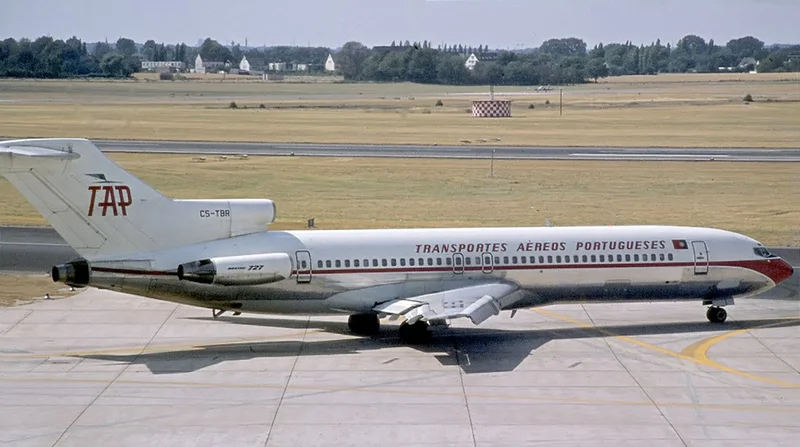
TAP Air Portugal Flight 425 crashed in the Madeira Islands, killing all 131 people aboard. The tragedy highlighted the dangers of aviation in challenging weather conditions and mountainous terrain.
The accident prompted significant improvements in aviation safety protocols and airport approach procedures. Investigators’ findings contributed to enhanced pilot training and weather monitoring systems worldwide.
1996 – Quincy Airport Collision
A Beechcraft 1900 and Beechcraft King Air collided at Quincy Regional Airport in Illinois, killing 14 people. The accident demonstrated the ongoing risks of aviation operations at smaller regional airports.
The collision led to enhanced air traffic control procedures and improved safety protocols at regional airports. Federal investigators’ recommendations strengthened aviation safety standards across the United States.
Sports and Recreation on November 19
1969 – Pelé Scores 1,000th Career Goal

Brazilian football legend Pelé scored his 1,000th career goal, cementing his status as the world’s greatest footballer. The historic achievement occurred during a match that captured global attention.
Pelé’s milestone represented the pinnacle of individual achievement in football history. His extraordinary scoring record inspired generations of players and elevated football’s status as the world’s most popular sport.
2004 – Historic NBA Brawl Erupts
The worst brawl in NBA history erupted, resulting in multiple player suspensions and assault charges against players and fans. The “Malice at the Palace” incident shocked the basketball world and damaged the league’s reputation.
The massive fight led to significant changes in NBA security protocols and player conduct policies. League officials implemented stricter rules governing player-fan interactions and arena security measures.
2023 – Cricket World Cup Final in India

The 2023 Cricket World Cup final took place at the Narendra Modi Stadium in Ahmedabad, India, with host nation India facing Australia. The match represented the culmination of cricket’s premier tournament.
The final showcased cricket’s global appeal and India’s growing influence in international sports. The massive stadium and worldwide television audience demonstrated cricket’s continued evolution as a major global sport.
Notable Births on November 19
1917 – Indira Gandhi Born

Indian politician Indira Gandhi was born, who would later become India’s third Prime Minister. Her birth marked the arrival of one of the 20th century’s most influential female political leaders.
Gandhi’s childhood in a politically active family shaped her future career in Indian politics. She would later lead India through critical periods of social and economic transformation.
1962 – Jodie Foster Born

American actress and director Jodie Foster was born in Los Angeles, California. Her early entry into entertainment would lead to one of Hollywood’s most distinguished careers.
Foster’s exceptional talent became evident in childhood, launching a career spanning decades. Her performances would earn multiple Academy Awards and establish her as one of cinema’s greatest actresses.
1933 – Larry King Born
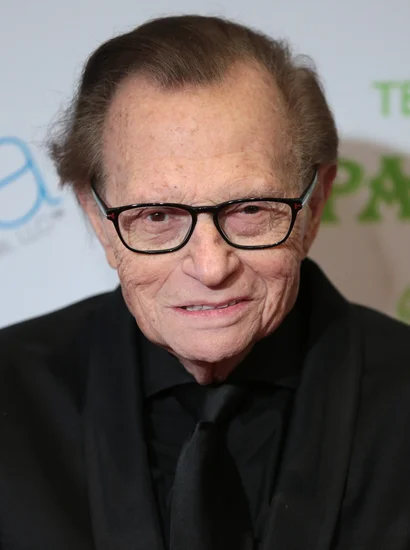
American journalist and talk show host Larry King was born in Brooklyn, New York. His distinctive interviewing style would revolutionize television journalism and celebrity interviews.
King’s career in broadcasting began in radio before transitioning to television. His nightly CNN program became essential viewing for politicians, celebrities, and news makers worldwide.
1942 – Calvin Klein Born

American fashion designer Calvin Klein was born in the Bronx, New York. His minimalist aesthetic would transform American fashion and establish a global luxury brand.
Klein’s design philosophy emphasized clean lines and understated elegance. His brand became synonymous with American style and sophisticated simplicity in fashion and fragrance.
1938 – Ted Turner Born

American businessman and philanthropist Ted Turner was born in Cincinnati, Ohio. His media empire would revolutionize television broadcasting and news coverage.
Turner’s entrepreneurial vision transformed cable television and created the first 24-hour news network. His innovations fundamentally changed how Americans consumed news and entertainment.
1976 – Jack Dorsey Born

American businessman Jack Dorsey was born in St. Louis, Missouri. His technological innovations would revolutionize social media and digital communication.
Dorsey’s creation of Twitter transformed global communication and political discourse. His platform became essential for news distribution and social movement organization worldwide.
Notable Deaths on November 19
2017 – Charles Manson Dies
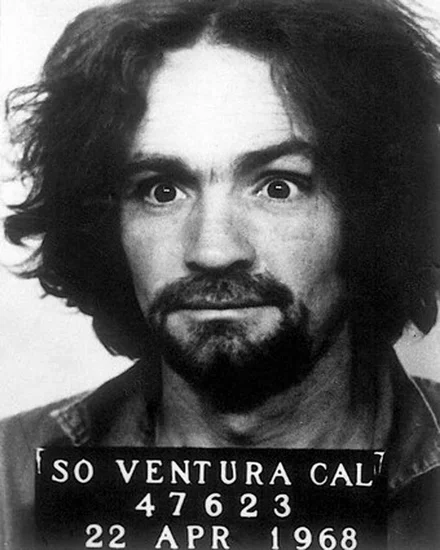
American cult leader and mass murderer Charles Manson died in prison at age 83. His death ended one of the most notorious criminal cases in American history.
Manson’s crimes in the 1960s shocked the nation and symbolized the dark side of the counterculture movement. His influence over followers demonstrated the dangerous power of charismatic manipulation.
2014 – Mike Nichols Dies
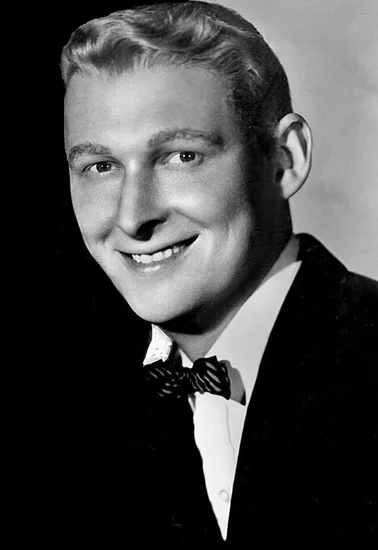
German-American director Mike Nichols died at age 83, ending a legendary career in theater and film. His death marked the loss of one of entertainment’s most versatile talents.
Nichols won numerous awards including Tony Awards, Emmy Awards, and an Academy Award. His direction of “The Graduate” and other films defined American cinema in the 1960s and beyond.
2023 – Rosalynn Carter Dies
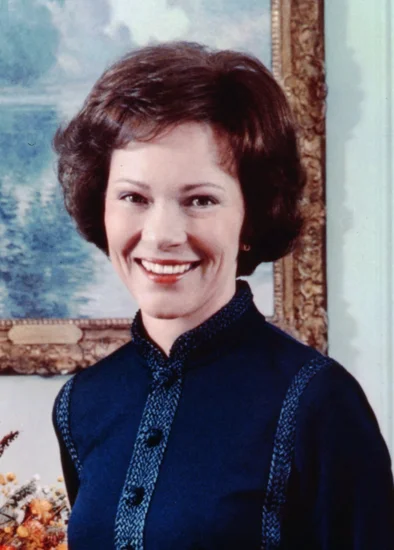
Former First Lady Rosalynn Carter died at age 96, concluding a lifetime of mental health advocacy and public service. Her death marked the end of an era in American political history.
Carter’s work destigmatizing mental illness and supporting caregivers transformed American healthcare policy. Her partnership with President Jimmy Carter represented one of the most effective political partnerships in modern history.
1998 – Ted Fujita Dies

Japanese-American meteorologist Ted Fujita died at age 78, leaving behind revolutionary contributions to weather science. His death marked the loss of the world’s foremost tornado research expert.
Fujita’s development of the tornado intensity scale transformed severe weather prediction and safety protocols. His research saved countless lives through improved warning systems and storm tracking technology.
2004 – John Vane Dies
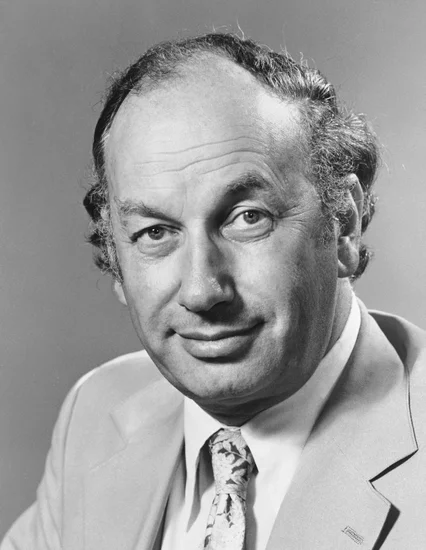
English pharmacologist John Vane died at age 77, ending a career that revolutionized cardiovascular medicine. His Nobel Prize-winning research transformed treatment of heart disease and stroke.
Vane’s discoveries about aspirin’s mechanism of action led to its widespread use in preventing heart attacks. His work on prostaglandins opened new avenues for pharmaceutical research and development.
Holidays and Observances on November 19
International Men’s Day
International Men’s Day is observed worldwide to celebrate men’s positive contributions to society and promote male health awareness. The day addresses issues affecting men and boys globally.
Celebrations focus on male role models, men’s health, and positive masculinity. The observance encourages dialogue about gender equality and men’s mental health challenges.
World Toilet Day

World Toilet Day raises awareness about global sanitation crises and promotes access to clean toilet facilities. The United Nations designated this day to highlight basic human dignity and public health.
The observance emphasizes that billions of people lack access to proper sanitation facilities. Advocacy efforts focus on improving water and sanitation infrastructure in developing nations.
Flag Day Brazil
Brazil observes Flag Day to honor the national flag and promote patriotic unity. The celebration includes ceremonies at schools, government buildings, and public spaces throughout the country.
The day commemorates Brazil’s flag adoption and reinforces national identity. Educational programs teach citizens about flag history and proper display protocols.
Garifuna Settlement Day Belize
Belize celebrates Garifuna Settlement Day to honor the arrival of the Garifuna people and their cultural contributions. The holiday recognizes this unique Afro-indigenous community’s heritage and traditions.
Celebrations include traditional music, dance, and food throughout Belize. The observance promotes cultural diversity and preserves Garifuna language and customs for future generations.
